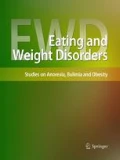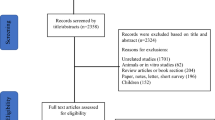Abstract
Purpose
Sleep duration has emerged as a crucial factor affecting body weight and feeding behaviour. The aim of our study was to explore the relationship among sleep duration, body composition, dietary intake, and quality of life (QoL) in obese subjects.
Methods
Body composition was assessed by DXA. “Sensewear Armband” was used to evaluate sleep duration. SF-36 questionnaire was used to evaluate quality of life (QoL). A 3-day dietary record was administered. Subjects were divided into 2 groups: sleep duration > and ≤300 min/day.
Results
137 subjects (105 women and 32 men), age: 49.8 ± 12.4 years, BMI: 38.6 ± 6.7 kg/m2, were enrolled. Sleep duration was ≤300 min in 30.6 % of subjects. Absolute and relative fat mass (FM) (40.5 ± 9 vs. 36.5 ± 9.1 kg; 40.2 ± 4.7 vs. 36.9 ± 5.6 %), and truncal fat mass (19.2 ± 6.1 vs. 16.6 ± 5 kg; 38.6 ± 5.3 vs. 35.2 ± 5.5 %) were higher in subjects sleeping ≤300 min when compared to their counterparts (all p < 0.05), whereas just a tendency towards a higher BMI was observed (p = 0.077). Even though energy intake was not different between groups, subjects sleeping ≤300 min reported a higher carbohydrate consumption per day (51.8 ± 5.1 vs. 48.4 ± 9.2 %, p = 0.038). SF-36 total score was lower in subjects sleeping ≤300 min (34.2 ± 17.8 vs. 41.4 ± 12.9, p = 0.025). Sleep duration was negatively associated with FM (r = −0.25, p = 0.01) and SF-36 total score (r = −0.31, p < 0.001). The inverse association between sleep duration and SF-36 total score was confirmed by the regression analysis after adjustment for BMI and fat mass (R = 0.43, R 2 = 0.19, p = 0.012).
Conclusion
Reduced sleep duration negatively influences body composition, macronutrient intake, and QoL in obese subjects.
Similar content being viewed by others
References
Frange C, de Queiroz SS, da Silva Prado JM, Tufik S, de Mello MT (2014) The impact of sleep duration on self-rated health. Sleep Sci 7:107–113. doi:10.1016/j.slsci.2014.09.006
Irish LA, Kline CE, Gunn HE, Buysse DJ, Hall MH (2015) The role of sleep hygiene in promoting public health: a review of empirical evidence. Sleep Med Rev 22:23–36. doi:10.1016/j.smrv.2014.10.001
Leger D, Bayon V, de Sanctis A (2015) The role of sleep in the regulation of body weight. Mol Cell Endocrinol. doi:10.1016/j.mce.2015.06.030
Chaput JP (2014) Sleep patterns, diet quality and energy balance. Physiol Behav 134:86–91. doi:10.1016/j.physbeh.2013.09.006
Cappuccio FP, Taggart FM, Kandala NB, Currie A, Peile E, Stranges S, Miller MA (2008) Meta-analysis of short sleep duration and obesity in children and adults. Sleep 31:619–626
Kim TW, Jeong JH, Hong SC (2015) The impact of sleep and circadian disturbance on hormones and metabolism. Int J Endocrinol 2015:591729. doi:10.1155/2015/591729
St-Onge MP (2013) The role of sleep duration in the regulation of energy balance: effects on energy intakes and expenditure. J Clin Sleep Med 9:73–80. doi:10.5664/jcsm.2348
Patel SR, Hu FB (2008) Short sleep duration and weight gain: a systematic review. Obesity (Silver Spring) 16:643–653. doi:10.1038/oby.2007.118
Chen X, Beydoun MA, Wang Y (2008) Is sleep duration associated with childhood obesity? A systematic review and meta-analysis. Obesity (Silver Spring) 16:265–274. doi:10.1038/oby.2007.118
Nedeltcheva AV, Scheer FA (2014) Metabolic effects of sleep disruption, links to obesity and diabetes. Curr Opin Endocrinol Diabetes Obes 21:293–298. doi:10.1097/MED.0000000000000082
Poggiogalle E, Di Lazzaro L, Pinto A, Migliaccio S, Lenzi A, Donini LM (2014) Health-related quality of life and quality of sexual life in obese subjects. Int J Endocrinol. 2014:847871. doi:10.1155/2014/847871
Araghi MH, Jagielski A, Neira I, Brown A, Higgs S, Thomas GN, Taheri S (2013) The complex associations among sleep quality, anxiety-depression, and quality of life in patients with extreme obesity. Sleep 36:1859–1865. doi:10.5665/sleep.3216
Lohman TJ, Roache AF, Martorell R (2002) 2002 Anthropometric standardization reference manual. Med Sci Sports Exerc 24:952
Heymsfield SB, Smith R, Aulet M, Bensen B, Lichtman S, Wang J et al (1990) Appendicular skeletal muscle mass: measurement by dual-photon absorptiometry. Am J Clin Nutr 52:214–218
Malavolti M, Pietrobelli A, Dugoni M, Poli M, Romagnoli E, De Cristofaro P, Battistini NC (2007) A new device for measuring resting energy expenditure (REE) in healthy subjects. Nutr Metab Cardiovasc Dis. 17:338–343
http://nut.entecra.it/646/tabelle_di_composizione_degli_alimenti.html
McHorney CA, Ware JE Jr, Raczek AE (1993) The MOS 36-Item Short-Form Health Survey (SF-36): II. Psychometric and clinical tests of validity in measuring physical and mental health constructs. Med Care 31:247–263
Chaput JP, Després JP, Bouchard C, Tremblay A (2007) Short sleep duration is associated with reduced leptin levels and increased adiposity: Results from the Quebec family study. Obesity (Silver Spring). 15:253–261. doi:10.1111/j.1758-8111.2011.00027.x
Patel SR, Blackwell T, Redline S, Ancoli-Israel S, Cauley JA, Hillier TA, Lewis CE, Orwoll ES, Stefanick ML, Taylor BC, Yaffe K, Stone KL, Osteoporotic Fractures in Men Research Group, Study of Osteoporotic Fractures Research Group (2008) The association between sleep duration and obesity in older adults. Int J Obes (Lond) 32:1825–1834. doi:10.1038/ijo.2008.198
Wirth MD, Hébert JR, Hand GA, Youngstedt SD, Hurley TG, Shook RP, Paluch AE, Sui X, James SL, Blair SN (2015) Association between actigraphic sleep metrics and body composition. Ann Epidemiol 25:773–778. doi:10.1038/ijo.2008.198
Iftikhar IH, Donley MA, Mindel J, Pleister A, Soriano S, Magalang UJ (2015) Sleep duration and metabolic syndrome. An updated dose-risk metaanalysis. Ann Am Thorac Soc. 12:1364–1372. doi:10.1513/AnnalsATS.201504-190OC
Nagai M, Tomata Y, Watanabe T, Kakizaki M, Tsuji I (2013) Association between sleep duration, weight gain, and obesity for long period. Sleep Med 14:206–210. doi:10.1016/j.sleep.2012.09.024
Nedeltcheva AV, Kilkus JM, Imperial J, Kasza K, Schoeller DA, Penev PD (2009) Sleep curtailment is accompanied by increased intake of calories from snacks. Am J Clin Nutr 89:126–133. doi:10.3945/ajcn.2008.26574
Dashti HS, Follis JL, Smith CE, Tanaka T, Cade BE, Gottlieb DJ et al (2015) Habitual sleep duration is associated with BMI and macronutrient intake and may be modified by CLOCK genetic. Am J Clin Nutr 101:135–143. doi:10.3945/ajcn.114.095026
Doo M, Kim Y (2015) Association between sleep duration and obesity is modified by dietary macronutrients intake in Korean. Obes Res Clin Pract. doi:10.1016/j.orcp.2015.08.010
Patterson RE, Emond JA, Natarajan L, Wesseling-Perry K, Kolonel LN, Jardack P, Ancoli-Israel S, Arab L (2014) Short sleep duration is associated with higher energy intake and expenditure among African-American and non-Hispanic white adults. J Nutr 144:461–466. doi:10.3945/jn.113.186890
Fontaine KR, Barofsky I (2001) Obesity and health-related quality of life. Obes Rev 2:173–182
Isidoro SI, Salvaggio A, Lo Bue A, Romano S, Marrone O, Insalaco G (2015) Effect of obstructive sleep apnea diagnosis on health related quality of life. Health Qual Life Outcomes. 13:68. doi:10.1186/s12955-015-0253-1
Paiva T, Gaspar T, Matos MG (2015) Sleep deprivation in adolescents: correlations with health complaints and health-related quality of life. Sleep Med 16:521–527. doi:10.1016/j.sleep.2014.10.010
Heitmann BL, Lissner L (1995) Dietary underreporting by obese individuals-is it specific or non-specific? BMJ 311:986–989
Author information
Authors and Affiliations
Corresponding author
Ethics declarations
Conflict of interest
The authors have no conflict of interest to declare.
Ethical approval
The study protocol was approved by the Ethical Committee of the ‘‘Sapienza’’ University of Rome
Informed consent
Written informed consent was obtained from all participants.
Rights and permissions
About this article
Cite this article
Poggiogalle, E., Lubrano, C., Gnessi, L. et al. Reduced sleep duration affects body composition, dietary intake and quality of life in obese subjects. Eat Weight Disord 21, 501–505 (2016). https://doi.org/10.1007/s40519-016-0254-z
Received:
Accepted:
Published:
Issue Date:
DOI: https://doi.org/10.1007/s40519-016-0254-z




